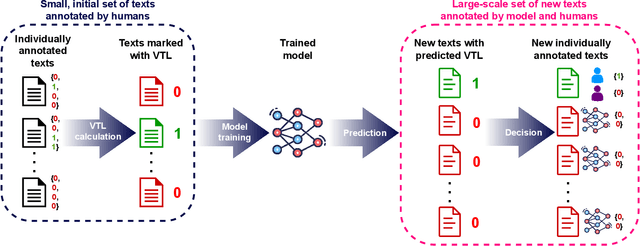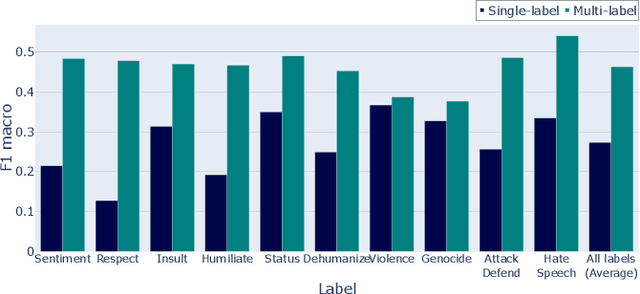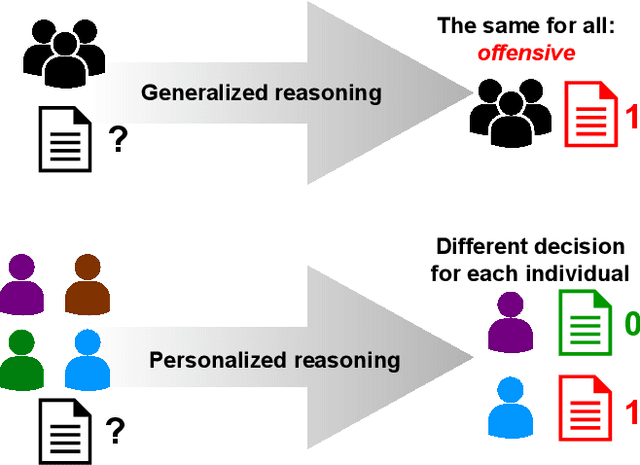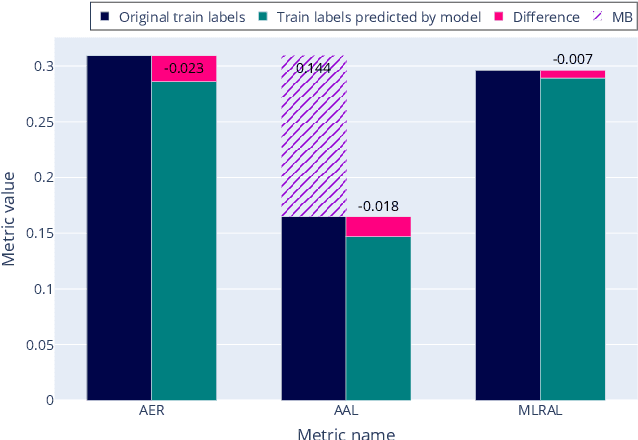Jan Kocon
Towards Model-Based Data Acquisition for Subjective Multi-Task NLP Problems
Dec 13, 2023



Abstract:Data annotated by humans is a source of knowledge by describing the peculiarities of the problem and therefore fueling the decision process of the trained model. Unfortunately, the annotation process for subjective natural language processing (NLP) problems like offensiveness or emotion detection is often very expensive and time-consuming. One of the inevitable risks is to spend some of the funds and annotator effort on annotations that do not provide any additional knowledge about the specific task. To minimize these costs, we propose a new model-based approach that allows the selection of tasks annotated individually for each text in a multi-task scenario. The experiments carried out on three datasets, dozens of NLP tasks, and thousands of annotations show that our method allows up to 40% reduction in the number of annotations with negligible loss of knowledge. The results also emphasize the need to collect a diverse amount of data required to efficiently train a model, depending on the subjectivity of the annotation task. We also focused on measuring the relation between subjective tasks by evaluating the model in single-task and multi-task scenarios. Moreover, for some datasets, training only on the labels predicted by our model improved the efficiency of task selection as a self-supervised learning regularization technique.
RWKV: Reinventing RNNs for the Transformer Era
May 22, 2023



Abstract:Transformers have revolutionized almost all natural language processing (NLP) tasks but suffer from memory and computational complexity that scales quadratically with sequence length. In contrast, recurrent neural networks (RNNs) exhibit linear scaling in memory and computational requirements but struggle to match the same performance as Transformers due to limitations in parallelization and scalability. We propose a novel model architecture, Receptance Weighted Key Value (RWKV), that combines the efficient parallelizable training of Transformers with the efficient inference of RNNs. Our approach leverages a linear attention mechanism and allows us to formulate the model as either a Transformer or an RNN, which parallelizes computations during training and maintains constant computational and memory complexity during inference, leading to the first non-transformer architecture to be scaled to tens of billions of parameters. Our experiments reveal that RWKV performs on par with similarly sized Transformers, suggesting that future work can leverage this architecture to create more efficient models. This work presents a significant step towards reconciling the trade-offs between computational efficiency and model performance in sequence processing tasks.
 Add to Chrome
Add to Chrome Add to Firefox
Add to Firefox Add to Edge
Add to Edge